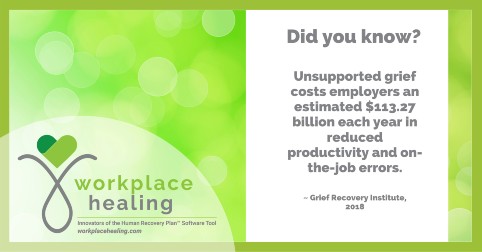
Understanding Post-Traumatic Growth Among Grieving Employees
Part I of our series about Post-Traumatic Growth in the Workplace.
Some employees may seek meaning and purpose following the traumatizing loss of a loved one. This special article series explores post-traumatic growth and how you can best support an employee experiencing it as part of their healing recovery process.
“How can something good come of her death?” wondered Jan Marrs soon after her beautiful, athletic and accomplished 18-year-old daughter Lane took her own life.
Common among those who experience post-traumatic growth as part of the grief process, Jan’s question would become key to how she has navigated her grief journey and the overwhelming emotions that come with losing a child.
Jan’s daughter Lane spent nearly a year and a half silently battling PTSD, anxiety and depression following a sexual assault that occurred the summer before her junior year in high school. Her parents didn’t learn about the assault until the middle of Lane’s senior year.
By the time Lane entered the University of Arkansas as an engineering student, she had made significant progress in her healing. But while studying for fall midterms, Lane stopped taking her medication, complaining that it fogged her brain. That same week, she also missed her regularly scheduled therapy session because her counselor got called away due to a family emergency.
“There were a lot of convening forces that made it just an awful situation,” Jan says. “We were on our way to Parents’ Weekend when we found out that Lane had died.”
What is post-traumatic growth?
Researchers often refer to post-traumatic growth as the sixth stage of grief. Post-traumatic growth occurs when a griever experiences positive growth, transformation, or a renewed sense of purpose following a traumatizing event or loss.
People experiencing post-traumatic growth may work to make sense of their grief by developing a greater appreciation for life and a desire to help others. Many non-profits, foundations, memorial scholarships, 5K walks/runs and memoirs are rooted in the phenomenon. Workplace Healing itself was born from personal tragedy.
Just as with the other five stages of grief, which include denial, anger, bargaining, depression and acceptance, everyone grieves differently and not everyone will experience post-traumatic growth. Post-traumatic growth can occur early in the grief cycle or much later.
“People were like, ‘hey, you seem to have missed the anger phase,’” Jan says. “I’m not sure I missed the anger phase. It got redirected into all of my energy at Speak Up, a cause that happened to catch me when I was in that phase. Then, once I was invested, it helped move me through those grief stages faster.”
According to researchers, individuals who experience post-traumatic growth report positive responses in the following five areas:
- Renewed life appreciation
- Relationships with others
- New possibilities in life
- Personal strength
- Spiritual change
Source: Richard Tedeschi, Ph.D., and Lawrence Calhoun, Ph.D., Journal of Traumatic Stress, 1996.
Why should managers care about post-traumatic growth?

Unsupported grief costs employers an estimated $113.27 billion each year in reduced productivity and on-the-job errors. ~ 2018 Grief Recovery Institute
No matter how an individual employee processes their loss, grief can have ripple effects in an organization.
As an HR manager or corporate leader, your acknowledgment and support of an employee experiencing post-traumatic growth can help you:
- Re-engage your grieving employee
- Restore productivity
- Boost morale
- Reduce the chances of your grieving employee making an early departure from your company.
Stay tuned for Part II of our ongoing series about post-traumatic growth coming next week. To learn how to build a customized plan that supports grievers in your workplace, schedule a demo of the Human Recovery Plan™ Software Platform.
